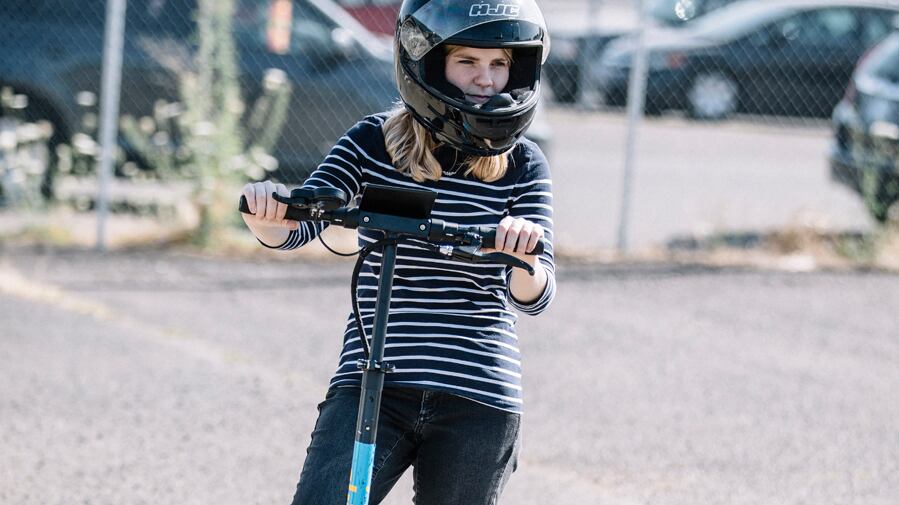A new study from Portland State University shows a notable gender gap in e-scooter ridership.
After last summer's four-month pilot program, PSU's Transportation Research and Education Center analyzed city data and found that only 34 percent of riders were women, and only two percent were transgender or nonbinary.
Related: Seven Scooter Companies Are Headed for Portland, and Hundreds of Devices Could Hit Streets Today
Jennifer Dill, the center's director, says scooters "appear to be attracting riders who are as racially and economically diverse as the city's population, though men and younger adults are definitely riding more."
Of the people polled, men indicated they were more likely to use e-scooters to get around quickly, whereas others were more like to ride scooters out of curiosity.
The study also found that 54 percent of women surveyed would ride scooters more if there were safer places to ride—a complaint Portland Bureau of Transportation seeks to address with designated bike parking and per-ride fees to fund greenway and bike lane infrastructure.
Related: E-Scooters Could Return to Portland April 26 With New Rules and More Devices
"If we want e-scooters to be a mobility option for everyone, we need to be thinking about providing safe and comfortable places to ride," Dill wrote.
Chris Warner, interim director of PBOT, says City Hall will use the data to "understand the implications of e-scooter use for cities across the nation."
"We think that research on e-scooter use can help us find new ways to make our streets safer for everyone," Warner says, regardless of how you travel."

